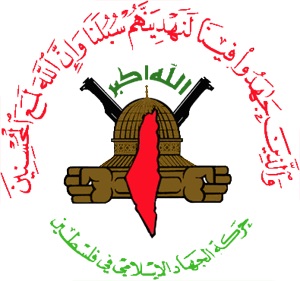
BRIEFS
Publication: Terrorism Monitor Volume: 12 Issue: 17
By:

Preparing for the Next Stage: Islamic Jihad’s Gaza War
Andrew McGregor
Days after the September 24 ceasefire that ended Israel’s Operation Protective Edge in Gaza, thousands of members of Islamic Jihad (IJ), who had fought alongside Hamas in the 50-day conflict, gathered with their weapons in Gaza City to hear al-Quds Brigade (the armed wing of Islamic Jihad) spokesman Mahmoud al-Majzoub (a.k.a. Abu Hamza) declare: “We have not stopped making weapons, even during the battle, and we will redouble our efforts… to prepare for the next stage, which we hope will be the battle for freedom” (AFP, August 30).
The Iranian-supported Sunni “resistance movement” (full name: Harakat al-Jihad al-Islami fi Filastin – The Islamic Jihad Movement in Palestine) was targeted by Israeli bombardment and heavily involved in the urban warfare that claimed the lives of 66 Israeli soldiers. Islamic Jihad reports the loss of 121 members during the fighting but asserts that it managed to fire 3,250 rockets, mortars and missiles into Israel during operations that were often closely coordinated with Hamas (i24news.tv, August 29). In addition, some 900 mortar shells were fired during operations against Israeli armor along the Gaza-Israel border (Press TV [Tehran], August 30). Certain IJ leaders were targeted during the conflict, including Shaban Sulayman al-Dahdouh, who was killed along with 13 others in a July 21 airstrike (Ma’an News Agency, August 5).
Islamic Jihad leader Ramadan Abdullah Shallah maintains that Israel was surprised by the military capabilities of the resistance movement in Gaza (Press TV, August 26). His movement mounted its own limited military operation in March after Israeli forces killed three IJ fighters within Gaza, firing 130 rockets into Israel during “Operation Breaking the Silence” (al-Jazeera, March 12).
While Islamic Jihad was prepared to negotiate a ceasefire in the latest conflict in August, Israeli demands for disarmament were rejected from the first. According to a senior Islamic Jihad leader, Khader Habib, “The issue of arms is connected to the existence of the occupation… This right [to bear arms in self-defense] is guaranteed by the laws of heaven and earth” (Middle East Monitor, August 7).
Al-Quds Brigade spokesman Abu Hamza has emphasized that Islamic Jihad is determined to improve its military capabilities while thanking those nations and groups who supported the Palestinians during the Israeli offensive, singling out Hezbollah, Iran and Sudan in particular (Press TV [Tehran], August 30). Iranian Revolutionary Guard Corps (IRGC) commander General Mohammed Ali Jafari has assured both Hamas and Islamic Jihad of more help “than in the past in all defense and social domains” (AFP, August 30).
With inspiration from the 1979 Islamic Revolution in Iran, Palestinian exiles Abd al-Aziz Awda and Taghi Shaqaqi created Islamic Jihad in the same year, initially operating out of Egypt. Shaqaqi was assassinated in Malta by a Mossad team in 1995, while Awda assumed the spiritual leadership of the group. Today, Islamic Jihad operates in both Gaza and the West Bank under the leadership of Dr. Ramadan Abdullah Shallah, an original member and former professor in southern Florida who took control of the movement after Shaqaqi’s death.
Though he views its establishment as unlikely, Shallah has indicated he would favor a one-state solution to the Arab-Israeli conflict in which Palestinian Muslims and Christians would have equal rights with Israeli Jews. [1] Short of a one-state solution, the IJ secretary-general insists on nothing less than the “total liberation of Palestine.” Shallah acknowledges ideological similarities with Hamas, but emphasizes Islamic Jihad’s separate approach:
We share the same Islamic identity. From a strategic point of view, there is no difference between us and Hamas, only a tactical difference… Don’t ask me what the political solution is to be. We aren’t the guilty party to be asked for a solution because we didn’t create the problem. Our sacred duty is to fight, to resist occupation of our sacred land change the conditions of our people. That is our duty, our sacred duty. Others, like Fatah, have maps and negotiations. We resist. [2]
Despite the close (and almost essential) military cooperation between Hamas’ Izz al-Din al-Qassam Brigades (the military wing of Hamas) and Islamic Jihad during the conflict with Israel, the two movements have become political rivals to some degree within Gaza. Recent polling has suggested Islamic Jihad has made recent gains in popularity at the expense of Hamas, though the movement still commands just over 13 percent support (Al-Monitor, August 10). Besides its military activities, Islamic Jihad offers social services to Gaza’s hard-pressed population, including health services, schools and dispute mediation, the latter often in ways that are more efficient than similar services offered by Hamas.
The movement believes its focus on armed struggle is attracting new supporters, though Islamic Jihad has the luxury of not having to focus on the nearly insurmountable problems of governing a region under blockade that confront Hamas on a daily basis. Islamic Jihad has also distanced itself from Hamas’ association with Egypt’s Muslim Brotherhood, a liability in today’s political climate and counter to IJ’s interest in maintaining good relations with the new Egyptian leadership. There are reports of occasional small-scale clashes between Hamas and Islamic Jihad inside Gaza, but Islamic Jihad shows little inclination to pursue or escalate these conflicts, keeping in mind that Hamas has control over the supply of weapons smuggled into Gaza (al-Akhbar [Beirut], April 16).
Notes
1. Scott Atran and Roberty Axelrod, “Interview with Ramadan Shallah, Secretary General, Palestinian Islamic Jihad,” Perspectives on Terrorism 4(2), 2010, Damascus, Syria, December 15, 2009, https://jeannicod.ccsd.cnrs.fr/docs/00/50/53/76/PDF/Ramadan_Shallah.pdf.
2. Ibid.
Islam’s Leading Muftis Condemn the “Islamic State”
Andrew McGregor
Egypt’s Grand Mufti (chief Islamic jurist), Shaykh Shawqi Ibrahim Abd al-Karim Allam, has opened a new campaign to combat Islamist militancy of the type promoted by the Islamic State through electronic means such as internet sites, videos and Twitter accounts. The campaign, which will involve Islamic scholars from across the world, aims to: “correct the image of Islam that has been tarnished in the West because of these criminal acts and to exonerate humanity from such crimes that defy natural instincts and spread hate between people” (Middle East News Agency [Cairo], August 31; September 1; AP, August 25). There were 37 million internet users in Egypt as of September 2013 (Ahram Online, September 1).
Egypt’s Grand Mufti has also been pulled into the debate on the controversial death sentences issued against leading members of the Muslim Brotherhood and their followers in connection with a series of violent incidents that followed last year’s popular rising/military coup that toppled the rule of Muhammad Mursi and the Freedom and Justice Party (the political wing of the Brotherhood). The specific case in which the Grand Mufti was invited to give his opinion involved death sentences handed down to Muslim Brotherhood Supreme Guide Muhammad al-Badi’e and seven other Brotherhood leaders in June (six others were sentenced to death in absentia, but have the right to new trials if they return) in connection with murder charges related to the clashes at the Istiqama mosque in Giza on July 23, 2013, that left nine people dead.
Egyptian legal procedure calls for all death sentences to be confirmed by a non-binding decision of the Grand Mufti, though in practice such decisions are nearly always followed. Unusually, in this case, the Mufti’s original decision to commute the June death sentences to life imprisonment was returned by the court for reconsideration (Ahram Online [Cairo], August 30; al-Jazeera, August 8). Shawqi Allam declined to take the hint and instead reaffirmed his position that the death penalties were inappropriate given that the evidence consisted solely of unsupported testimony from a police operative (Deutsche Welle, August 30). The Grand Mufti’s actions have been interpreted as a rebuke to the judicial process that has delivered hundreds of death sentences to Muslim Brotherhood members and supporters this year following the group’s official designation as a “terrorist” organization. Muhammad al-Badi’e still faces another death sentence in relation to a separate case regarding the Brothers’ alleged armed response to a July 2014 demonstration at their al-Muqattam headquarters in eastern Cairo.
The decisions of Egypt’s Dar al-Ifta (House of Religious Edicts) are typically closely aligned to official government policy, leading many observers to consider it a quasi-governmental agency. Nonetheless, the office and Egypt’s Grand Mufti remain important sources of spiritual direction throughout the Sunni Islamic world, with thousands of fatwa-s being issued every month in response to questions of faith and practice from around the Islamic world. Compared to institutions such as Cairo’s 10th century al-Azhar Islamic University (also brought under government control in 1961), Dar al-Ifta is a comparatively modern institution, having been created at the order of Khedive Abbas al-Hilmi in 1895.
In Saudi Arabia, Grand Mufti Shaykh Abd al-Aziz al-Ashaykh, chairman of the Council of Senior Ulema and the General Presidency of Scholarly Research and Ifta (the Kingdom’s fatwa-issuing office), used an August 28 radio interview to respond to the arrest of eight men charged with recruiting fighters for the Islamic State by urging young Saudis to resist calls for jihad “under unknown banners and perverted principles” (Nida al-Islam Radio [Mecca], August 28).
The interview followed a statement entitled “Foresight and Remembrance,” made several days earlier in which the Saudi Grand Mufti described members of al-Qaeda and the Islamic State as “Kharijites, the first group that deviated from the religion because they accused Muslims of disbelief due to their sins and allowed killing them and taking their money,” a reference to an early and traditionally much despised early Islamic movement whose advocacy of jihad against rulers they deemed insufficiently Islamic (similar to the takfiri pose adopted by the modern Islamist extremists) led to nearly two centuries of conflict in the Islamic world: “Extremist and militant ideas and terrorism which spread decay on earth, destroying human civilization, are not in any way part of Islam, but are rather Islam’s number one enemy, and Muslims are their first victims…” (Saudi Press Agency, August 19).
The Grand Mufti’s comments reflect a growing concern in Saudi Arabia that the Kingdom will inevitably be targeted by the so-called Islamic State, a development that could shatter the partnership between Wahhabi clerics and the al-Sa’ud royal family that dominates the Kingdom both politically and spiritually. Thousands of Saudis are believed to have left to join Islamic State and al-Nusra Front forces in Iraq and Syria in recent months (Reuters, August 25). The Islamic State poses a direct challenge to the religious legitimacy of the al-Sa’ud monarchy and their rule of the holy cities of Mecca and Madinah by presenting the creation of a caliphate as the true fulfillment of the Wahhabist “project” while simultaneously undercutting the authority of Wahhabist clerics such as Shaykh Abd al-Aziz, whom the movement views as having been co-opted by their partnership with a “corrupt and un-Islamic” royal family.





